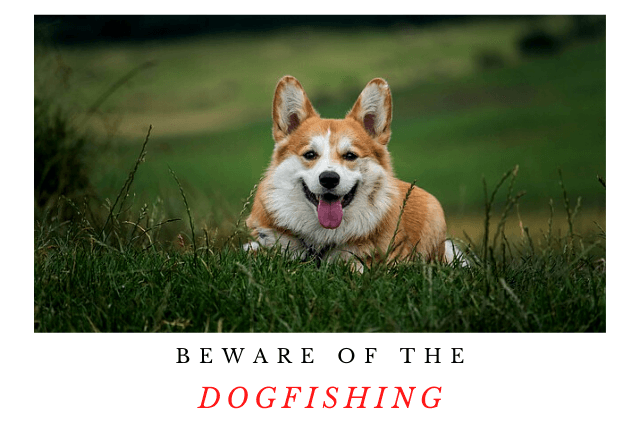
One woman who spent Christmas Day in the emergency vets with her new puppy is warning others to be wary of scams.
Sarah bought a pet puppy from an online advertisement on Christmas Eve and had to take her for emergency care the following day.
The dog contracted parvovirus, a highly contagious and potentially fatal illness that causes lethargy, vomiting and diarrhea.
Sarah was overcome with emotion recalling her encounter. “It was a very difficult situation and that’s what spurred us on to get the message out there. We just wanted to do our best for her and take her away from there, get her vaccinated and give her a good home,” she recalls
What is dogfishing?
Dogfishing can be described as a form of online identity theft. Victims often purchase animals from the dog’s section of Craigslist or Gumtree, where they are scammed into unknowingly buying sick or dead pets.
As victims contact the seller requesting support, the scammer assumes yet another fake identity and convinces them to buy expensive medication for their “pets”.
The scammer then continues to milk the victim by conning them into buying more medication and eventually gives an excuse as to why they can’t meet up.
A real pet is subsequently discovered in the house of a fraudster, which has been “groomed” into appearing healthy with a fake collar and online pictures.
The dangers of dogfishing

Dogfishing is a form of online identity theft which is very hard to trace. Victims often contact the sellers several times because they appear helpful and kind in responding to the initial requests when in reality they have stolen another person’s identity.
As victims become more emotionally attached, they are willing to spend more money on the animals and may buy them gifts.
Considering that many people look for certain breeds on the pets section of local classifieds website, these sellers are targeted and can be easily fooled by the scammers into thinking they’re talking to a genuine buyer.
The seller is often left feeling very guilty after finding out it was an online scam – as if there was something they could have done to prevent it.
When contacted by the owner of the dog, the seller asks them if they’d like to donate money towards vaccinations or food.
Tips for avoiding a scammer
Since there are so many scammers using many tricks to take your money, I think the best way to not get scammed is:
- Do not buy a pet online. Ever. Meet the person, talk to them see how they look, maybe video call if you can. NEVER BUY A PET ONLINE!
- If someone seems like they’re too good to be true, or too nice, they probably are.
- Never transfer money unless you can meet the person and see the pet first. Do not make payments via online bank transfers as it is very difficult to trace or retrieve lost funds.
- Never send money for pets which are overseas, dead on arrival (cadavers), pets that do not exist, advertised “free to good home” or where you cannot be certain of the seller’s identity.
What to do if you suspect a scammer is trying to dogfish you

If you consider from the very beginning that something is not right, trust your instincts and stop all contact. Do not send any money or give out your personal details.
If in doubt, STOP CONTACT AND REPORT THE SITUATION TO YOUR LOCAL AUTHORITY OR POLICE DEPARTMENT AS THEY WILL BE ABLE TO HELP YOU.
Your local authority (police department) can also assist you in relaying messages to the scammer if you provide them with the telephone number, social media or email address.
It is a good idea to report the scammer’s details and other relevant information to the police so that they may be able to track down other victims of this person.
If your local police department isn’t familiar with scammers, ask them who they would contact at the FBI or other law enforcement agency to report internet scams.
Conclusion
We are living in a world where people can create fake profiles on social media and pretend to be someone they’re not. This is called “dogfishing.”
It’s important that you know the signs of this scam so you don’t get scammed yourself!
If you suspect a scammer is trying to dogfish you; do not respond, block them!
If you need help figuring out if your potential friend or love interest is actually who he claims to be, let us know by reporting the scammer to us.
We will work with you to uncover any red flags before it takes more victims.
- Essential Oils Safe for Cats: What Every Pet Owner Needs to Know - May 23, 2025
- Herbal Supplements for Cats: A Natural Approach to Cat Wellness - May 21, 2025
- Signs of a Healthy Cat Coat: What Every Cat Owner Should Know - May 19, 2025

